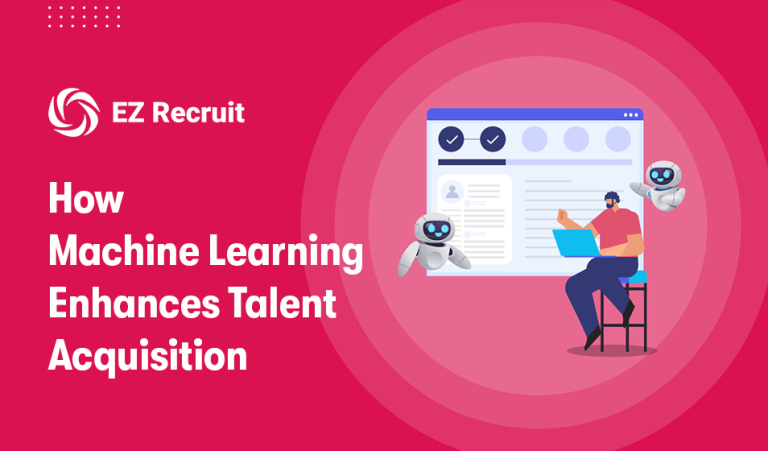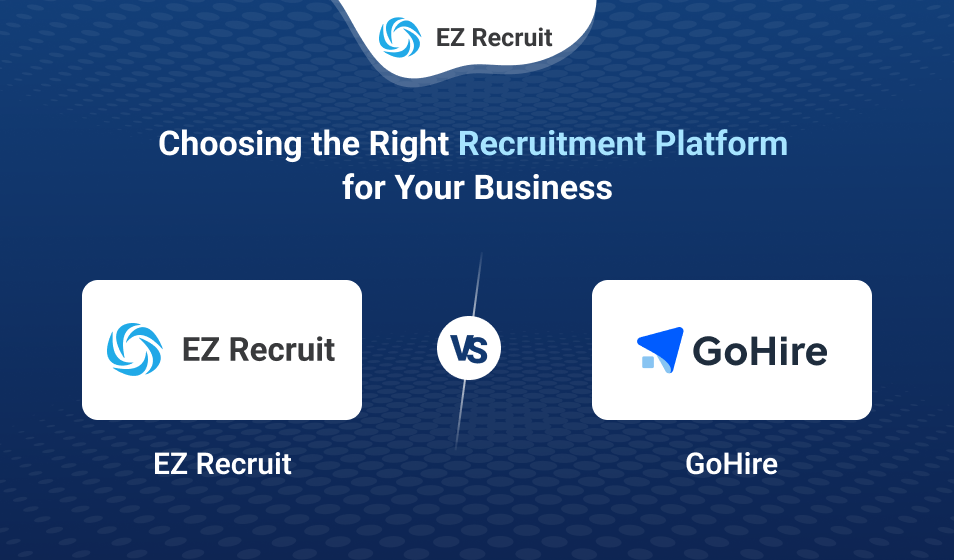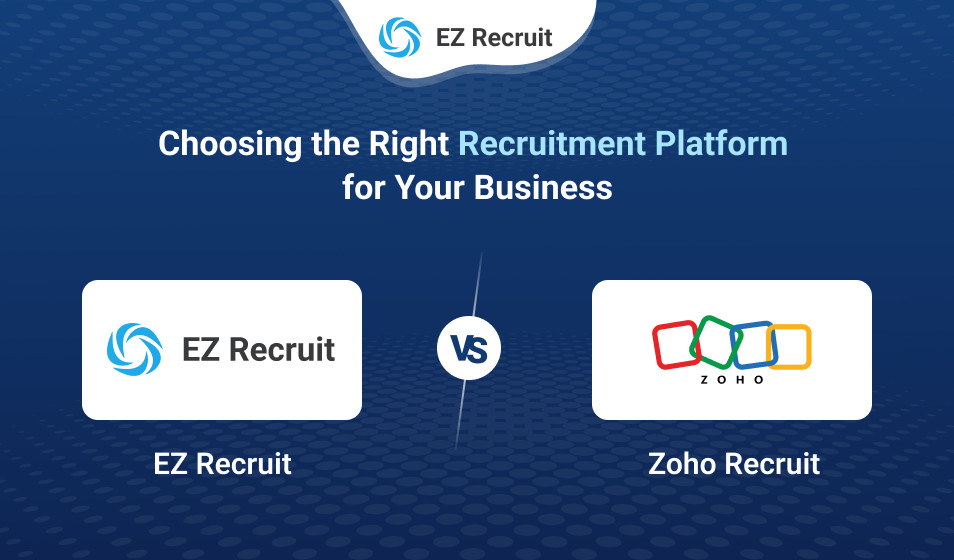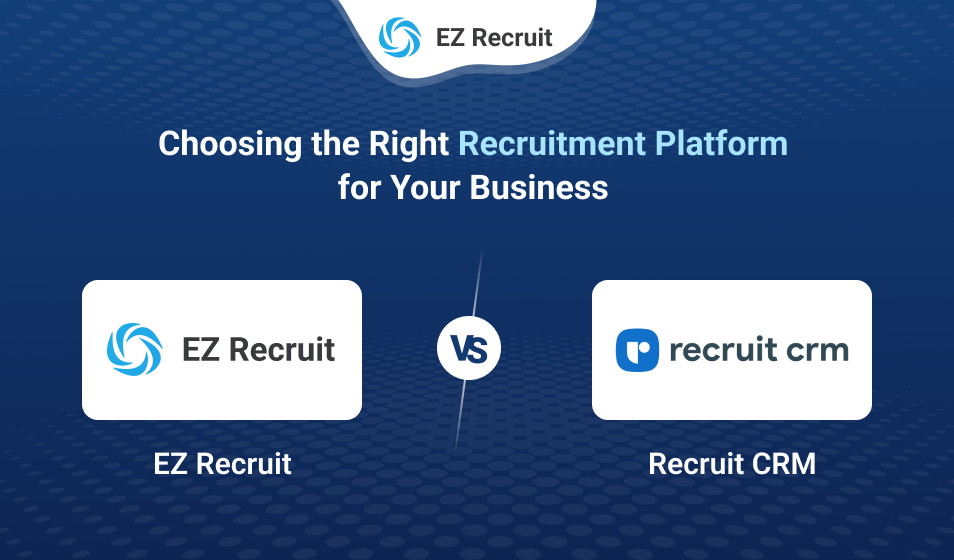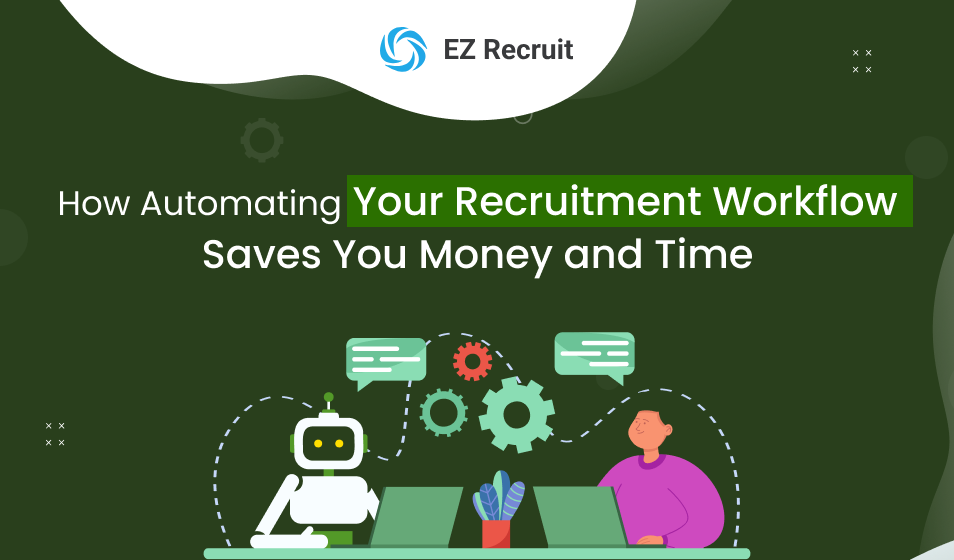In the highly competitive business jungle of today, acquiring and holding onto top talent isn’t just important-it’s your ultimate differentiator. With an overwhelming amount of candidate data available at our fingertips, relying solely on human judgment or gut feeling no longer cuts it. This is where AI-powered recruitment platforms like EzRecruit come in. Leveraging machine learning (ML) in hiring, EzRecruit transforms how companies source, screen, and select the right candidates—faster, smarter, and without bias. From intelligent resume parsing to predictive candidate scoring, ML is redefining talent acquisition as we know it.
The Evolution of Talent Acquisition
The manner in which we hire new talent has evolved over time. A straightforward administration task once was now a key strategy that helps increase the growth of companies. With technology advancement, particularly artificial intelligence (AI) and machine learning, this evolution has gained momentum. HR professionals now can make hiring choices more rapidly, intelligently, and justly than ever before.
Automating Resume Screening
Sifting through a pile of resumes for one position can literally take up your time in the recruitment process. Fortunately, machine learning software steps in and performs automated scanning and ranking of resumes on crucial aspects such as education, experience, and skills. They learn from past hiring decisions, reduce human bias, and accelerate the shortlisting process while continuously refining their screening accuracy.
Predictive Analytics for Better Hiring Decisions
Machine-learning software has a tendency to sift through previous hiring information in order to identify trends that can aid in forecasting how well potential candidates may perform. For instance, such systems are able to detect that individuals with particular certifications or similar work experience tend to perform better or remain longer in certain positions. This realization enables recruiters to make better decisions when hiring, ultimately increasing the prospect of discovering long-term employees who align with the vision of the company.
Candidate Matching
In contrast to keyword-driven platforms, ML-driven platforms are better equipped to match job seekers to open jobs. To achieve the most optimal job fits, such platforms consider various parameters, including career development, transferable skills, as well as how much a candidate will fit in at the company. By making sure that the candidates are placed in roles that fit their profiles, they not only enhance the candidate experience but also enhance the hire quality.
Chatbots & Candidate Engagement
Machine learning-powered conversational AI solutions are really transforming how companies engage with job seekers. Chatbots can handle those initial conversations with applicants, answer frequently asked questions, and even assist in scheduling interviews. This kind of automation ensures speedy communication, keeps applicants informed, and boosts overall satisfaction with the hiring process.
Reducing Unconscious Bias
Recruitment bias has been a problem for years, and machine learning holds the promise of solutions. By training models on anonymous data and by constantly monitoring for fairness, organizations can reduce biases based on gender, age, ethnicity, or education. Although ML systems cannot be completely excluded from bias, under close supervision, they can help lead to fairer hiring practices.
Continuous Learning and Improvement
In contrast to static rules-based systems, machine learning models learn and get better with time. With increased processing of data, such systems make improved predictions regarding outcomes, best candidates, and optimized recruitment funnels. Such ongoing improvement results in more targeted hiring strategies and improved overall talent outcomes.
Challenges and Considerations
While there are numerous advantages, there are some issues that arise in the deployment of machine learning in talent acquisition. The quality of data matters because bad or biased data can result in poor predictions. Establishing trust between HR teams and candidates also means requiring ML decisions to be transparent and explainable. In order to encourage the adoption of responsible AI, ethical reasoning, data privacy, and legal and regulatory compliance need to be considered.
The Future of Talent Acquisition
As machine learning continues to evolve, it’s going to have an increasingly larger role in how businesses identify and recruit talent. Consider this: from sophisticated sentiment analysis during the interview process to customized onboarding experiences, ML is going to be infused into every aspect of the employee lifecycle. Businesses that begin leveraging these technologies today not only will maintain a competitive edge but will also assemble more nimble, diverse, and future-focused teams.
Additional Opportunities for Integration
Workforce Planning and Internal Mobility
By closely examining internal metrics, such as employee turnover rates, promotions, and how various departments are increasing, machine learning can actually change the way HR departments forecast their hiring requirements. It can also optimize internal mobility by recognizing existing employees who are ready to fill new positions, depending on their performance, career progression, and competencies.
Improving Job Descriptions and Outreach
Machine learning is able to parse the performance of past job advertisements to recommend phrases that attract the appropriate candidates. It is also able to tailor outreach approaches to react more attractively to passive candidates through personalized communication that mirrors their professional behaviors and interests.
Video Interview Analysis
Sophisticated machine learning algorithms are capable of parsing facial expressions, tone of voice, and words spoken during video interviews. This can be used to determine the confidence, passion, and appropriateness of a candidate for a company’s values. Although it is important to utilize the technology responsibly, it can add an additional layer of judgment to complement human assessment.
The Conclusion
Machine learning isn’t merely a buzzword for HR, it’s revolutionary. Automating mundane work, yielding insightful data analysis, and refining decision-making, ML equips HR teams with the capability to concentrate on what matters most, nurturing substantial connections with the best talent. As we gear up, the marriage of human intuition and machine awareness will define the future of talent acquisition initiatives.
Ready to hire smarter? Contact us or book a free demo to see how EzRecruit can simplify and supercharge your recruitment process.
